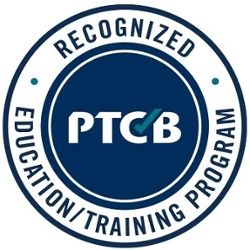If you’re interested in healthcare, enjoy working with people, and have a keen eye for detail, a career as a pharmacy technician might be the perfect fit. Pharmacy technicians play a critical role in pharmacies, hospitals, long-term care facilities, and a growing range of other healthcare settings. They work under the supervision of licensed pharmacists, helping to ensure that patients receive the correct medications in a safe and timely manner. It’s a career that demands precision, reliability, and compassion and can also be incredibly rewarding for those who are up to the challenge.
In this article, we’ll take a closer look at what pharmacy technicians do, break down the educational and certification requirements, outline the steps to enter the field, and explore the potential career paths ahead. By the time you’re finished reading, you’ll have a solid grasp of what this profession entails and a clear roadmap to help guide you toward becoming a skilled and qualified pharmacy technician.
In this article, we’ll take a closer look at what pharmacy technicians do, break down the educational and certification requirements, outline the steps to enter the field, and explore the potential career paths ahead. By the time you’re finished reading, you’ll have a solid grasp of what this profession entails and a clear roadmap to help guide you toward becoming a skilled and qualified pharmacy technician.
What Does a Pharmacy Technician Do?
Educational Requirements and Training
Becoming a pharmacy technician usually doesn’t require a four-year degree, though educational standards can differ by state. In most cases, you’ll need at least a high school diploma or GED, but many states also grant licenses to those currently in high school or actively working toward their GED. Beyond these basic prerequisites, you’ll need pharmacy-specific training —and there are several options available.
Vocational or Community College Programs
On-the-Job Training
Online Programs

For those who want flexibility—due to work, family, or other commitments—online pharmacy technician training programs can be a great option. These courses cover the same topics as in-person classes but let you study at your own pace—and often at a significantly lower cost than community college options. Many online programs can be completed in just a few months, making them an increasingly popular choice for aspiring pharmacy technicians.
Certification and Licensure
Nearly all states require pharmacy technicians to obtain a license from their state Board of Pharmacy before starting work. Because each Board sets its own guidelines, licensing requirements can vary, but they often include earning a high school diploma or GED, passing a criminal background check, and paying a license fee. In most states, certification is also required before you can be licensed. Even if it’s not mandatory where you live, having a recognized certification can give you a significant advantage in the job market, potentially leading to higher pay and more job opportunities.
Career Advancement Opportunities
Working as a pharmacy technician can serve as a springboard into other positions. With experience and additional certifications, you can take on more specialized roles.
Lead or Senior Pharmacy Technician
Specialized Pharmacy Technician Roles
Transition to a Pharmacist Role
Job Outlook and Salary Expectations
The demand for pharmacy technicians continues to rise as the healthcare industry expands. An aging population, advances in pharmaceutical research, and increased access to healthcare services all contribute to steady job growth. Additionally, the proliferation of retail clinics and the role of pharmacists in clinical services have increased the need for qualified technicians to handle medication dispensing and administrative tasks.
While salaries vary by region, level of experience, and workplace setting, pharmacy technicians can generally expect a competitive wage. Entry-level technicians without PTCB certification may begin at a modest wage, but as they become certified, gain experience, or move into hospital or specialty settings, their earnings often increase.
A Trusted and Impactful Profession
Becoming a pharmacy technician offers a direct path into a growing field with opportunities for professional development. It’s a career that allows you to help people every day while working in a stable and respected healthcare environment. With the right education, certification, and commitment to excellence, you can build a long, fulfilling career.
If the idea of making a positive impact on patient care excites you—if you’re detail-oriented, compassionate, and eager to learn—then starting a career as a pharmacy technician might just be your perfect prescription for success.
How Pharmacy Technician Academy Can Help

At Pharmacy Technician Academy, we’re dedicated to helping you achieve certification and succeed as a pharmacy technician. Our 1st Pass CPhT Course is a recognized program by the PTCB and designed to thoroughly prepare you for the Pharmacy Technician Certification Exam (PTCE).
By completing the 1st Pass CPhT Course, you’ll meet the PTCB’s eligibility requirements to take the certification exam, even if you don’t have prior pharmacy experience. The course is structured to cover all the essential topics tested on the PTCE, including medication basics, pharmacy law, patient safety, and more—giving you the knowledge and confidence needed to pass on your first attempt.
We’re here to support aspiring pharmacy technicians with everything they need to achieve certification and thrive in their careers.
Frequently asked questions
How do I get licensed as a pharmacy technician?
Nearly all states require pharmacy technicians to be licensed through their state Board of Pharmacy. Requirements typically include a high school diploma or GED, a background check, payment of a license fee, and often proof of certification. Specific guidelines vary by state, so it’s best to review your state’s Board of Pharmacy regulations. For more detailed information about your state's requirements, take a look at our State Requirements Guide.
Do I need certification to work as a pharmacy technician?
Although not all states mandate certification, becoming PTCB certified can significantly improve your job prospects, earning potential, and opportunities for career advancement.
Can I become a pharmacy technician online?
Yes. Many accredited online programs let you learn at your own pace, often at a lower cost than traditional classroom-based courses. However, be sure to choose a program recognized by the Pharmacy Technician Certification Board (PTCB) to ensure eligibility for national certification exams.
How long does it take to become a pharmacy technician?
The timeline varies depending on the type of training you pursue. Some online certificate programs can be completed in just a few months, while earning an associate degree may take up to two years. Once your training is complete, you’ll also need to factor in any state licensing procedures which can add a few more weeks to the overall process.

